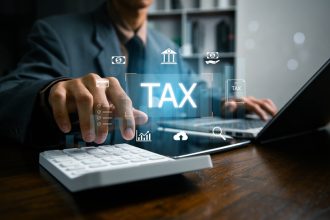The Biden administration announced this week that the Education Department will be accelerating student loan forgiveness for a cohort of borrowers much sooner than expected.
The effort is part of an early implementation initiative for borrowers enrolled in the SAVE plan, a new income-driven repayment option that the administration rolled out last fall. Qualifying borrowers may start seeing their student loan balances discharged starting next month.
“Imagine checking your student debt balance and seeing $0.00. Starting next month, many Americans enrolled in our SAVE plan will join the already 3.6 million who have seen their student debt cancelled by my Administration through various actions,” said President Joe Biden on X.
Here are the details.
Student Loan Forgiveness Timelines For SAVE Plan
Biden’s new SAVE plan is an IDR program that can allow for eventual student loan forgiveness after a certain amount of time in repayment. Borrowers with undergraduate student loans can receive student loan forgiveness after 20 years, while those with graduate school loans can get their loan balances discharged after 25 years. Another Biden initiative called the IDR Account Adjustment can also provide borrowers with retroactive “credit” toward student loan forgiveness under IDR plans for past loan periods that might not have otherwise counted, such as certain deferments or forbearances.
But SAVE can allow for even faster student loan forgiveness for undergraduate borrowers who had relatively low initial balances. A provision of the program would permit student loan forgiveness in as little as 10 years for these individuals.
“Borrowers with original principal balances of $12,000 or less will receive forgiveness of any remaining balance after making ten years of payments, with the maximum repayment period before forgiveness rising by one year for every additional $1,000 borrowed,” says Education Department guidance. “For example, if your original principal balance is $14,000, you will see forgiveness after 12 years. Payments made previously (before 2024) and those made from now on will count toward these maximum forgiveness timeframes.”
SAVE is being implemented in phases. The accelerated student loan forgiveness provision for undergraduate borrowers had been set to go into effect after July 1 of this year.
Accelerated Student Loan Forgiveness To Be Implemented Early, Says Biden Administration
But this week, the Education Department announced that it would be hastening the implementation of accelerated student loan forgiveness under SAVE for these undergraduate borrowers. Instead of going into effect later this summer, the faster loan forgiveness timelines will go into effect starting next month — much sooner than originally planned.
“The shorter time to forgiveness benefit will particularly help borrowers who attended community colleges; these students typically borrow smaller amounts,” said a department announcement. “Overall, the Department estimates that the SAVE Plan will make 85% of future community college borrowers debt free within 10 years. The SAVE Plan will also help borrowers who are more likely to struggle with their loans, as most borrowers in default originally borrowed $12,000 or less.”
The Biden administration will be notifying borrowers who qualify for this student loan forgiveness by email as soon as this week. The department urges those who may qualify (particularly those who originally borrowed $12,000 or less) to enroll in SAVE as soon as possible.
Republicans Slam Biden Student Loan Forgiveness ‘Scheme’
Republicans in Congress were quick to criticize the initiative, accusing the Biden administration of bypassing the legislative process to enact student loan forgiveness.
“President Biden is downright desperate to buy votes before the election – so much so that he greenlights the Department of Education to dump even more kerosene on an already raging student debt fire,” said Rep. Virginia Foxx (R-NC), chairwoman of the House Education and the Workforce Committee in a statement on Friday. “It would surprise no one if the Department relied on infants playing with abacuses to balance its books – it is a complete and utter disaster.”
The Biden administration enacted SAVE through a regulatory process authorized by the Higher Education Act. Republican leaders in Congress tried to repeal the SAVE plan last year through the Congressional Review Act, a statute that gives Congress the ability to reverse recently enacted regulatory initiatives. But the repeal effort was ultimately unsuccessful and failed to pass the Senate. Had it passed, President Biden had vowed to veto the measure.
Republican lawmakers have filed their own student loan relief bill, which would create a new student loan repayment plan based on income but would be less generous than the provisions of the SAVE plan.
Further Student Loan Forgiveness Reading
Watch Your Email, Student Loan Forgiveness Approvals Should Continue This Month
3.5 Million Borrowers Will Receive Student Loan Forgiveness Credit For Nonpayment As Servicing Troubles Persist
$132 Billion In Student Loan Forgiveness Approved: Who Qualifies, And What’s Next
Student Loan Forgiveness ‘Buyback’ Option Provides New Path To Relief
Read the full article here
















